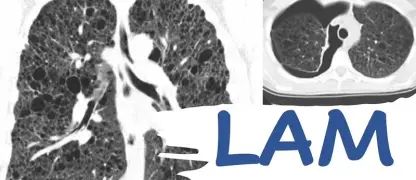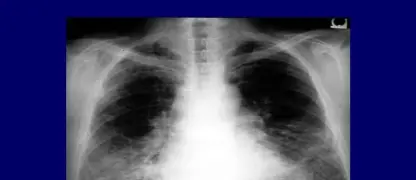That persistent cough might be more than just a temporary nuisance. Understanding what is chronic bronchitis is the first step toward better breathing and preventing serious lung damage.
What are the main causes of Chronic Bronchitis?
- The primary of all causes of chronic bronchitis is long-term cigarette smoking, which irritates the airways and leads to the characteristic smoker's cough.
- Prolonged exposure to secondhand smoke, air pollution, dust, or toxic gases in the environment or workplace can also cause chronic airway inflammation.
- While less common, a history of recurrent respiratory infections can also damage the bronchial tubes and contribute to the development of this condition.
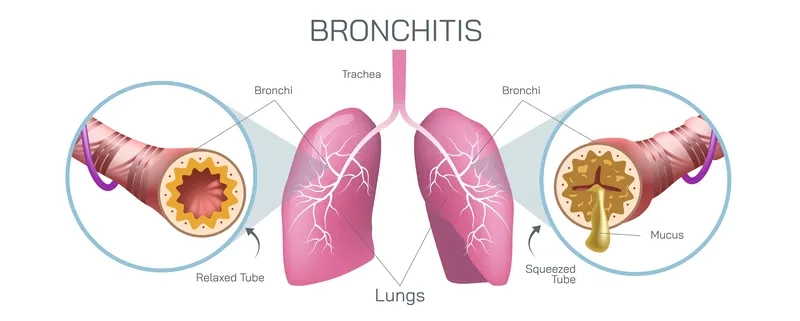
Key symptoms of Chronic Bronchitis to watch for
- The hallmark of chronic bronchitis symptoms is a productive cough with mucus that lasts for at least three months a year for two consecutive years.
- Unlike a temporary illness, this condition involves constant irritation, leading to shortness of breath, wheezing, and chest discomfort; the key difference in acute vs chronic bronchitis is its persistence.
- As a form of COPD, COPD chronic bronchitis symptoms often include fatigue and frequent respiratory infections due to increased mucus production in the airways.
How can you manage Chronic Bronchitis effectively?
- The most crucial step in chronic bronchitis treatment and prevention of progression is to quit smoking, which can help slow down further lung damage.
- Medical treatments often include bronchodilator inhalers to open airways, steroids to reduce inflammation, and sometimes oxygen therapy for more severe cases.
- Living with chronic bronchitis is improved with pulmonary rehabilitation, which includes breathing exercises and nutritional counseling to enhance overall well-being and function.
>>> See more: Laryngeal cancer - When a hoarse voice is a warning sign
Image of the disease Chronic Bronchitis
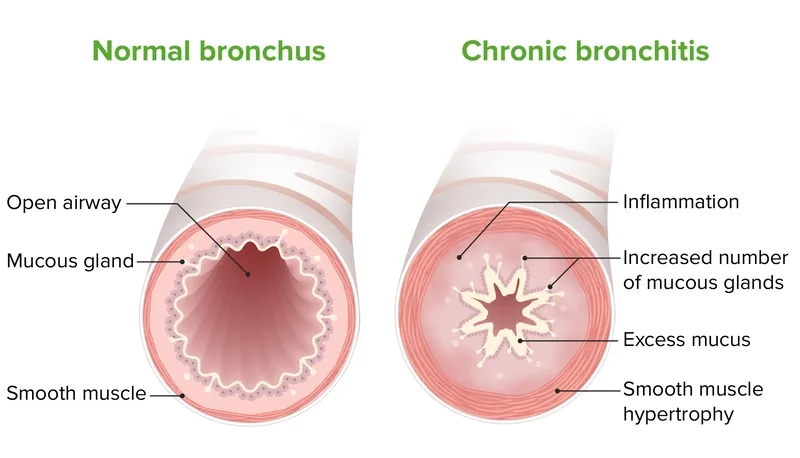

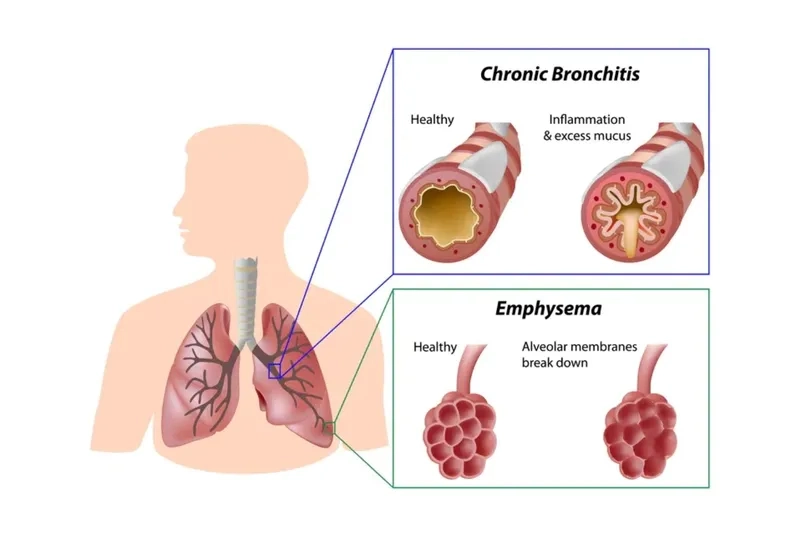


>>> Discover more: Living with chronic obstructive pulmonary disease - A guide
While the answer to is chronic bronchitis curable is no, its symptoms can be effectively managed to improve quality of life. Consult a healthcare provider for a proper diagnosis and a personalized treatment plan.
>>> Read to understand more: Asthma - Understanding your triggers and treatment options


